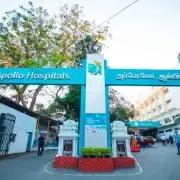The Future of Medical Tourism
In This Article
The Future of Medical Tourism
Elena
Updated on July 04, 2024
Medically verified by Dr. Arya
Fact checked by Sreemoyee

Medical Travel
10 min read
Medical tourism, the practice of travelling to another country for medical care, has been a growing trend over the past decade.
With the advent of globalisation and advancements in healthcare, patients now seek treatments abroad for various reasons, including cost savings, access to specialised procedures, and reduced wait times.
Are you planning to embark on your medical tourism journey in 2024? In that case, this blog will be immensely useful for you.
As we look ahead to 2024 and beyond, several factors are poised to shape the future of medical tourism.
Karetrip is here to give you an idea about the same. Join us as we explore the possibilities of the future of medical tourism.
Technological Advancements
One of the most significant drivers of change in medical tourism will be technological innovation. Telemedicine, robotics, and AI-driven diagnostics are revolutionising healthcare delivery, making it more accessible and efficient.
- Telemedicine: The rise of telemedicine has made it easier for patients to consult with doctors across the globe. This trend is expected to continue, allowing patients to receive preliminary consultations and follow-up care without needing to travel.
This not only reduces costs but also minimises the logistical challenges associated with international travel.
- Robotic Surgery and Advanced Diagnostics: Robotic surgery and advanced diagnostic tools are becoming more prevalent, offering high precision and improved outcomes.
Countries that invest in these technologies are likely to attract more medical tourists seeking state-of-the-art treatments that may not be available in their home countries.
- Blockchain and Data Security: Ensuring the security and privacy of patient data is crucial.
Blockchain technology is emerging as a solution to provide secure and transparent medical records, which can be easily accessed by healthcare providers globally, enhancing the patient experience and trust in cross-border healthcare services.
Changing Patient Preferences
Patients are becoming more informed and discerning about their healthcare choices. They seek not only cost-effective treatments but also high-quality care and exceptional patient experiences.
- Holistic and Wellness Treatments: There is a growing demand for holistic and wellness treatments, including traditional medicine, spa therapies, and wellness retreats.
Destinations that combine medical procedures with holistic care are likely to see increased popularity. Countries like India, Thailand, and Costa Rica, known for their holistic health services, will continue to attract health-conscious tourists.
- Personalised Medicine: Advances in genetics and biotechnology have paved the way for personalised medicine, where treatments are tailored to an individual's genetic makeup.
Medical tourists will increasingly seek destinations that offer cutting-edge personalised treatments for conditions like cancer, cardiovascular diseases, and rare genetic disorders.
- Ageing Population: As the global population ages, there will be a higher demand for treatments related to age-associated conditions such as joint replacements, cardiovascular surgeries, and dental procedures.
Countries with specialised services in geriatric care and rehabilitation will become prime destinations for elderly patients.
Regulatory Developments
Regulation and accreditation play a critical role in the medical tourism industry, influencing both patient safety and the reputation of destination countries.
- International Standards and Accreditation: The adoption of international standards and accreditation by healthcare facilities is crucial for building trust among medical tourists.
Organisations like the Joint Commission International (JCI) provide accreditation to hospitals that meet stringent quality and safety standards. More healthcare providers worldwide are expected to seek such accreditations to attract international patients.
- Cross-Border Healthcare Policies: Governments are likely to develop more comprehensive policies to regulate and promote medical tourism.
These policies may include streamlined visa processes for medical tourists, tax incentives for healthcare providers, and bilateral agreements between countries to facilitate cross-border healthcare.
- Insurance and Payment Models: The integration of medical tourism into health insurance plans is expected to rise. Insurance companies may offer packages that cover treatments abroad, making medical tourism more accessible to a broader population.
Innovative payment models, such as bundled payments for medical travel packages, will also emerge, providing cost transparency and simplifying the process for patients.
 10 min Read
10 min ReadBooking Budget Friendly Accommodation Near Apollo Hospital, Greams Road
 10 min read
10 min readWhere can I exchange Bangladeshi Taka To Indian Rupees?
 10 min read
10 min readUnique Bangalore: Unusual & Intriguing Places to Explore While Staying In The City For Treatment
Get a Callback Now
Impact of the COVID-19 Pandemic
The COVID-19 pandemic has had a profound impact on global travel and healthcare systems, and its effects on medical tourism are multifaceted.
- Increased Health and Safety Concerns: The pandemic has heightened awareness of health and safety standards. Medical tourists will prioritise destinations that demonstrate robust health protocols and have low infection rates.
Hospitals and clinics will need to adopt stringent hygiene measures and communicate these effectively to potential patients.
- Vaccination and Health Passports: The implementation of vaccination and health passports may become a standard requirement for international travel.
Medical tourism destinations will need to ensure that their healthcare facilities and procedures are compliant with international health guidelines to reassure patients.
- Resilience and Adaptation: The pandemic has underscored the importance of resilience and adaptability in the healthcare sector.
Destinations that quickly adapt to the challenges posed by COVID-19, such as offering telehealth services and ensuring continuity of care, will be better positioned to attract medical tourists in the future.
Emerging Destinations
While traditional medical tourism hotspots like India, Thailand, and Mexico will continue to thrive, new destinations are emerging on the global stage.
- Eastern Europe: Countries like Hungary, Poland, and the Czech Republic are gaining recognition for high-quality, affordable medical treatments, particularly in dentistry and cosmetic surgery.
These countries offer a combination of advanced healthcare infrastructure and lower costs compared to Western Europe.
- Middle East and North Africa (MENA): The MENA region is investing heavily in healthcare infrastructure to become a hub for medical tourism.
The UAE, particularly Dubai and Abu Dhabi, is positioning itself as a leader in medical tourism with state-of-the-art facilities and strategic partnerships with renowned international healthcare providers.
- Latin America: Countries like Colombia, Brazil, and Argentina are emerging as popular destinations for cosmetic surgery and other elective procedures.
These countries combine skilled medical professionals with attractive tourism experiences, making them appealing to medical tourists.
The future of medical tourism is dynamic and multifaceted, driven by technological advancements, changing patient preferences, regulatory developments, and the enduring impact of the COVID-19 pandemic.
As we move into 2024 and beyond, destinations that prioritise quality care, patient safety, and holistic experiences will stand out in the competitive landscape of medical tourism.
Emerging technologies, personalised treatments, and strategic regulatory frameworks will further shape this evolving industry, offering patients worldwide more options for accessing affordable, high-quality healthcare.
The information provided represents the views and opinions of Karetrip. It is crucial to conduct your own independent research before making any decisions regarding your healthcare journey. - Disclaimer
Technological innovations like telemedicine, robotics, and AI diagnostics are set to revolutionise the accessibility and efficiency of medical tourism.
The demand for holistic and wellness treatments is increasing, attracting health-conscious tourists to destinations known for comprehensive healthcare services.
Personalised medicine, driven by advances in genetics and biotechnology, is becoming a sought-after option for medical tourists seeking tailored treatments.
The ageing global population is leading to a higher demand for geriatric care, making countries with specialised elderly care services prime medical tourism destinations.
International standards and accreditation by organisations like the Joint Commission International (JCI) are crucial for building trust and attracting medical tourists.
Governments are expected to develop comprehensive policies to regulate and promote medical tourism, including streamlined visa processes and bilateral healthcare agreements.
The integration of medical tourism into health insurance plans and innovative payment models will make treatments abroad more accessible and transparent.
The COVID-19 pandemic has heightened awareness of health and safety standards, prioritising destinations with robust health protocols and low infection rates.
The implementation of vaccination and health passports may become standard for international travel, affecting the medical tourism landscape.
Emerging destinations in Eastern Europe, the Middle East, and Latin America are gaining recognition for their high-quality, affordable medical treatments and tourism experiences.
Source Links
Medical Tourism Magazine


